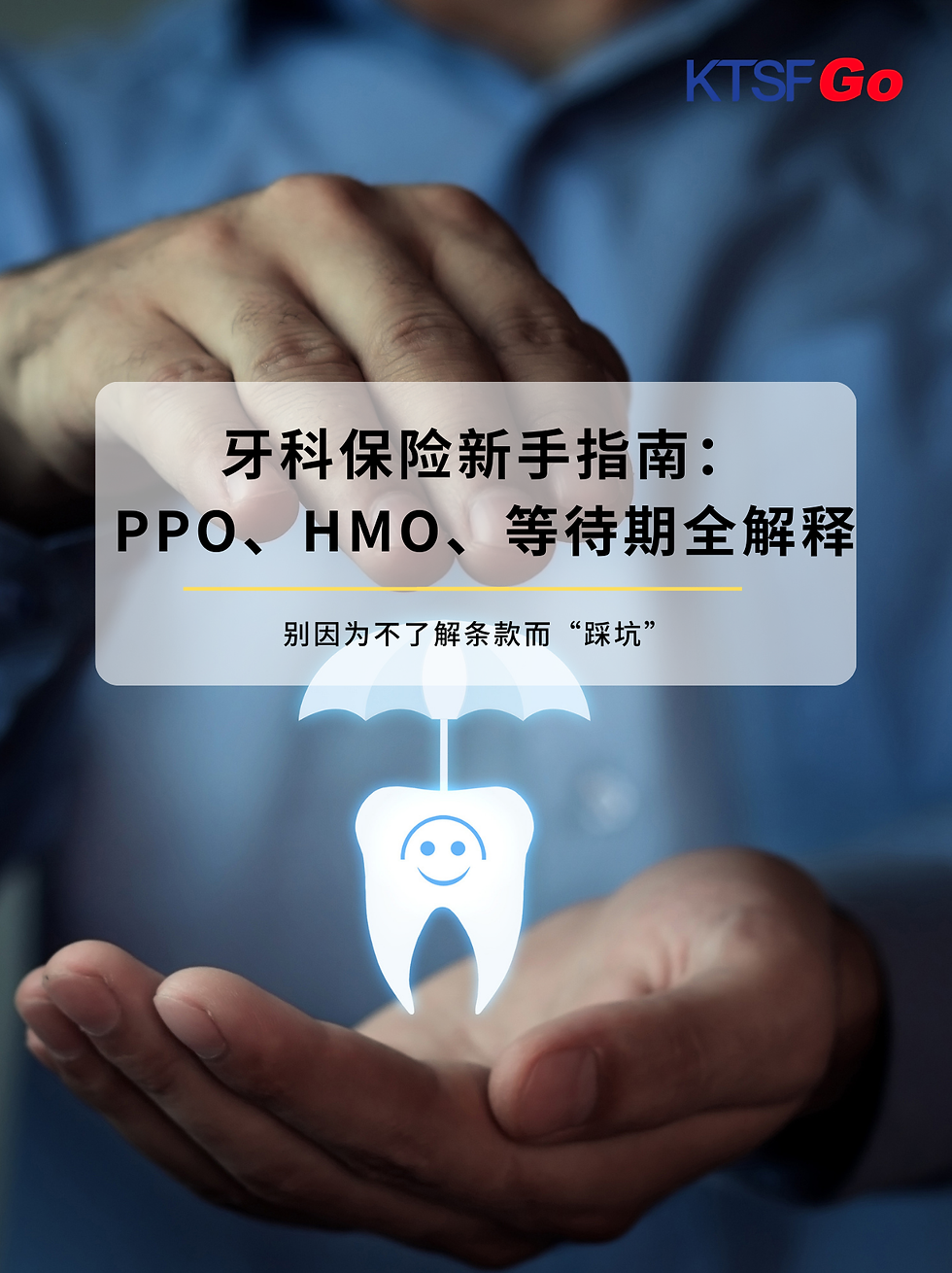Recognizing Pregnancy and Postpartum Emergencies That Could Save Your Life
- xyang960
- Oct 16, 2025
- 4 min read
Pregnancy is a miracle of life — but it also comes with potential risks.Many expectant and new mothers worry:
“When should I go to the hospital?”“Which symptoms mean it’s an emergency?”
The truth is: the answers often lie in the body’s subtle changes.
According to the U.S. Centers for Disease Control and Prevention (CDC), more than 50,000 women in the U.S. experience serious pregnancy-related complications each year — many of which could be prevented with timely recognition and medical care. This guide, based on recommendations from CDC, the American College of Obstetricians and Gynecologists (ACOG), and UT Southwestern Medical Center, will help you identify the most dangerous red flags during pregnancy and postpartum — and know exactly when to call 911 or seek emergency care.
1. Call 911 or Go to the Emergency Room Immediately If You Experience:
These symptoms at any stage of pregnancy or after birth may signal life-threatening conditions. Do not wait or self-treat — seek help immediately.
✅ Severe or persistent headache
Does not improve with pain medication
May be accompanied by blurred vision, dizziness, or vomiting
Possible warning sign of preeclampsia or brain hemorrhage
✅ Vision changes
Flashing lights, blind spots, double vision, or ongoing blurriness
Could indicate hypertensive brain swelling or increased intracranial pressure
✅ Shortness of breath or chest tightness
Trouble breathing while lying flat, or sudden breathlessness
Possible pulmonary embolism or heart failure
✅ Fainting or frequent dizziness
Temporary loss of consciousness or limb weakness
May signal low blood flow to the brain or severe anemia
✅ Noticeable decrease or absence of fetal movement
After 28 weeks, fewer than 10 kicks per hour
May indicate placental abruption or fetal distress
✅ Heavy vaginal bleeding or fluid leakage
Bright red bleeding or fluid resembling amniotic fluid
Warning signs of placenta previa, placental abruption, or premature rupture of membranes
✅ Chest pain or irregular heartbeat
Chest pressure with sweating, nausea, or dizziness
Possible arrhythmia or myocarditis
✅ Severe abdominal pain or uterine cramps
Lasting longer than 10 minutes, unrelieved by rest
May suggest abnormal contractions, placental abruption, or uterine rupture
✅ High fever ≥ 38°C (100.4°F)
Especially if accompanied by chills, foul-smelling amniotic fluid, or lower abdominal pain
May indicate infection of the membranes (chorioamnionitis) or urinary tract infection
✅ Heavy postpartum bleeding
Soaking a pad completely within an hour
Foul-smelling lochia or blood clots
Could mean poor uterine contraction or retained placenta
✅ Thoughts of harming yourself or your baby
Feelings of hopelessness or urges to self-harm or harm the infant
May indicate postpartum depression or postpartum psychosis — a true medical emergency
2. When to Call Your OB Instead of the ER
The following symptoms are less urgent, but still need professional evaluation. Call your obstetrician or midwife for advice before heading to the hospital:
Mild or irregular contractions
Light vaginal spotting or change in discharge
Persistent nausea/vomiting but able to eat and drink
Low-grade fever (<38°C / 100.4°F)
Mild swelling in legs or hands, occasional numbness
Insomnia or mild anxiety
📞 Your doctor will assess your gestational age, symptom severity, and medical history to decide whether you need in-person evaluation or simple observation.
3. Why You Must Learn to “Listen” to Your Body During Pregnancy
Many mothers fear they’re “overreacting,” but from a medical perspective:
👉 Overreaction is safer than underreaction.
❤️ Why body awareness matters:
Blood volume, hormones, and organ workload all increase dramatically during pregnancy.
Conditions like gestational hypertension, diabetes, placental problems, and preterm labor can develop rapidly.
Some complications — such as eclampsia, amniotic fluid embolism, or disseminated intravascular coagulation (DIC) — can progress to life-threatening crises in minutes.
Learning your body’s signals — and trusting them — can save your life.

4. Emergency vs. Normal Labor: How to Tell the Difference?
Symptom | Recommended Action |
Regular contractions lasting > 1 hour | Hospital evaluation for labor |
Watery vaginal discharge, water breaking | Emergency check to confirm if membranes have ruptured |
Sudden decrease in fetal movement | Emergency fetal heart monitoring |
Persistent high fever with contractions | Emergency care to prevent infection |
One leg becomes red, swollen, warm | Urgent screening for deep vein thrombosis (DVT) |
Emotional breakdown, uncontrollable crying | Joint intervention by psychiatry and obstetrics |
5. Emergency Readiness Checklist for Family Members
Families play a vital role in pregnancy safety. Every household should:
✅ Keep the mother’s prenatal records and ID in one easily accessible bag
✅ Know the nearest maternity emergency hospital and the route
✅ Set up emergency contacts and medical consent forms
✅ Keep basic tools at home: thermometer, fetal kick count chart, prenatal log
✅ If the mother can’t speak clearly, family should report symptoms, timeline, and medical history to doctors
6. Don’t Let Your Guard Down After Birth: 4 Postpartum Red Flags
⚠️ Heavy vaginal bleeding
If bleeding does not slow significantly within 2 hours, or pads are soaked within an hour → go to the ER.
⚠️ Extreme sadness or hopelessness
If emotions spiral out of control or thoughts of harm arise → this may be postpartum psychosis, not just “baby blues.”
⚠️ Breast redness, swelling, fever
Likely mastitis or breast abscess — requires antibiotics or drainage.
⚠️ Persistent fever, chills, or foul-smelling discharge
Could indicate uterine infection (endometritis) or wound infection — both medical emergencies.
The Key to Survival Is Always “Timely Action”
Pregnancy and childbirth are among the most powerful — and complex — experiences in a woman’s life.You are not fragile; you are a warrior whose body is performing an incredible feat.But when your body sends distress signals, trust your intuition and seek help immediately.
Never worry about “bothering the doctor” or “making a fuss.”In pregnancy and postpartum, even a small symptom could be the first sign of something serious.Prompt medical care doesn’t just protect you — it protects your baby, your family, and your future.

















Comments